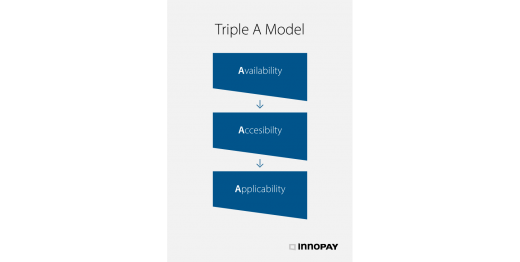Data? It’s all about access

Everybody seems to be talking about data these days – either about the ‘cool stuff’ you can you do with it, linked to buzzwords such as blockchain, artificial intelligence (AI) and ‘big data’, or about data itself: data quality, data sharing, data leaks and data security. But it strikes me that there’s a gaping hole in these conversations: access to data. As we increasingly move towards the transactional era, this apparent collective lack of interest in managing data access is starting to cause serious problems.
Apart from scientists and policymakers, most people haven’t tended to care about data access and have so far been sharing their data willingly. Many regard it as ‘a price you have to pay’; if you want to stay connected through social media and want the convenience of ordering online, you go ahead and click on “I agree”. However, people are becoming increasingly aware of the fact that they subsequently have no control over the data they provide. The realisation is slowly dawning that others – usually the tech giants such as Facebook, Google, Amazon, etc. – are using people’s data for their own benefit, yet giving nothing (or very little) in return.
In the EU we have the GDPR data protection and privacy directive, of course, but it still doesn’t provide a real means to express the rights we have over our own data. We lack data sovereignty, we lack the ability to decide who can do what with our data under what conditions – in other words, we lack control over our data. And it’s all because we don’t have the right focus: a focus on data access.
Rising to the challenge and tackling the risks
This affects not only consumers, but also organisations. Because there is no way organisations can provide access to their data in a controlled, standard and easy way, many of them decide not to share data at all. In the Dutch healthcare sector, for example, organisations stopped sharing data about the results of mental health treatment due to new regulations that were actually meant to protect user rights. Regulation turns into an excuse to not share data. This has prevented health institutions from gathering essential data on the effectiveness of mental health treatment for the past three years.
The lack of focus on data access is also hampering innovation across the board. Just imagine how much more could be achieved in sectors such as healthcare, logistics and energy if data sharing could be made seamless and secure.
To rise to these challenges and tackle the risks, we require access to sufficient high-quality, relevant and unbiased data, including the necessary rights to use it. People need to be able to manage the access to their data – to regain control. Only then will we be able to restore the ‘data benefit balance’ and help our data economy thrive. But first, we need to have the right discussion.

How INNOPAY’s Triple A model facilitates the data access discussion
To those organisations who are keen to help change the mindset towards data access, I’d like to propose the INNOPAY Triple A model. This model visualises the data issue as comprising three layers: Availability, Access and Application. It is built on the principle that data availability and data access are preconditions for any data application. When data becomes separated from applications, an access layer or exchange layer is needed.
This ‘soft’ infrastructure could serve as the basis for control and enable sound data sharing, just as hard infrastructure (such as waterways, roads, railways, sewers and the electrical grid) has been the foundation of health, wealth and economic growth from the time of early civilisations. In other words, the access layer is the infrastructure that will help to build a solid and sustainable foundation for the next growth cycle of the digital data-driven economy.
The central design principle of this soft infrastructure should be data sovereignty: giving organisations and people alike the possibility to control what’s happening with their data.
A common vision and shared standards are crucial to adoption, so this must be coordinated carefully.
Let’s make history
Cast your mind back to the early days of the internet, just before standards such as TCP/IP were agreed. All that is history now, but we have reached a similarly pivotal point today. We need to create a European soft infrastructure for data sharing based on a sound consent mechanism which works for every person, business and government. So I call on you to join me in shaping the future. Let’s make history again!
To actively participate in the discussion, register for the Data Sharing Days 2020.




